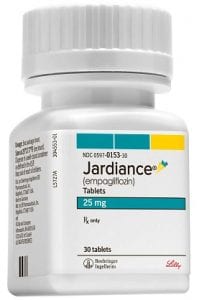 (Sept. 24, 2018) Diabetes drugs can cause Fournier’s gangrene. That was the shocking conclusion of the FDA last month after the agency said it received reports that 12 people contracted gangrene or necrotizing fasciitis after taking a popular diabetes drug.
(Sept. 24, 2018) Diabetes drugs can cause Fournier’s gangrene. That was the shocking conclusion of the FDA last month after the agency said it received reports that 12 people contracted gangrene or necrotizing fasciitis after taking a popular diabetes drug.
Invokana, Farxiga, Jardiance, or Steglatro can raise the risk of a nightmarish flesh-eating bacteria that can infect the genitals and cause partial amputations.
A serious genital infection has been reported with the class of type 2 diabetes medicines called sodium-glucose cotransporter-2 (SGLT-2) inhibitors. The serous infection, called necrotizing fasciitis of the perineum, is also referred to as Fournier’s gangrene.
The U.S. FDA announced the infection warning on August 8, 2018 after receiving a dozen reports of individuals who had been diagnosed with the potentially fatal gangrene or necrotizing fasciitis after using an SGLT-2 inhibitor. Several of those infected people required multiple surgeries, and one person died from the infection.
What are SGLT-2 Inhibitors?
SGLT2 inhibitors — sodium-glucose cotransporter-2 – are prescribed by doctors to help lower blood sugar in adults with type 2 diabetes. SGLT-2 drugs lower blood sugar by causing the kidneys to remove sugar through the urine. Brand-name SGLT2 inhibitor drugs (and their active ingredients) include Invokana (canagliflozin), Farxiga (dapagliflozin), Jardiance (empagliflozin), and Steglatro (ertugliflozino). Steglatro is also FDA approved to lower heart attack and stroke risk in adults suffering from type 2 diabetes and heart disease.
What is Fournier’s Gangrene?
Fournier’s gangrene is a life-threatening bacterial infection of tissue under the skin that surrounds the perineum’s muscles, nerves, fat, and blood vessels. The perineum is the space between anus and scrotum in the male, and the skin between anus and vulva in the female.
Diabetes raises Risk Factors
The FDA web site states that “having diabetes is a risk factor for developing Fournier’s gangrene. But this condition is still rare among diabetics. There’s a dearth of published literature regarding the occurrence of Fournier’s gangrene for men and women. Fournier’s gangrene occurs in roughly 1.6 out of 100,000 males annually in the U.S. It most frequently occurs in males aged 50-79 (approx. 3.3 out of 100,000).
At least 12 Diabetes Drug Gangrene Cases reported to FDA
In a five-year period since the first SGLT-2 drug was approved by the FDA — from March 2013 to May 2018 — the agency said it found 12 cases of Fournier’s gangrene in patients taking an SGLT-2 inhibitor. That number includes only reports submitted to FDA and found in the medical literature. The FDA admits there may be more cases about which it is not aware. Most experts generally agree that only 1-10% of a given drug’s adverse drug events ever get reported. That would put the actual number of people injured by Fournier’s gangrene or necrotizing fasciitis from SGLT-2 drugs somewhere between 120 and 1,200.
1.7 Million SGLT-2 Prescriptions in 2017
The U.S. FDA estimates that 1.7 million patients filled a prescription for an SGLT-2 inhibitor in 2017. The agency said the 12 Fournier’s gangrene cases it saw involved 7 men and 5 women. All the injured people developed Fournier’s gangrene several months after filling an SGLT2 inhibitor prescription.
Diabetes Drugs cause Gangrene
The FDA said that in the 30 years prior to 2013, it had received reports of just six cases of Fournier’s gangrene (all of which occurred in men) from all other antidiabetic drug classes.
Related
- Diabetes Drug Gangrene Lawsuit
- Invokana Flesh-eating Infection Warning

by Matthews & Associates




